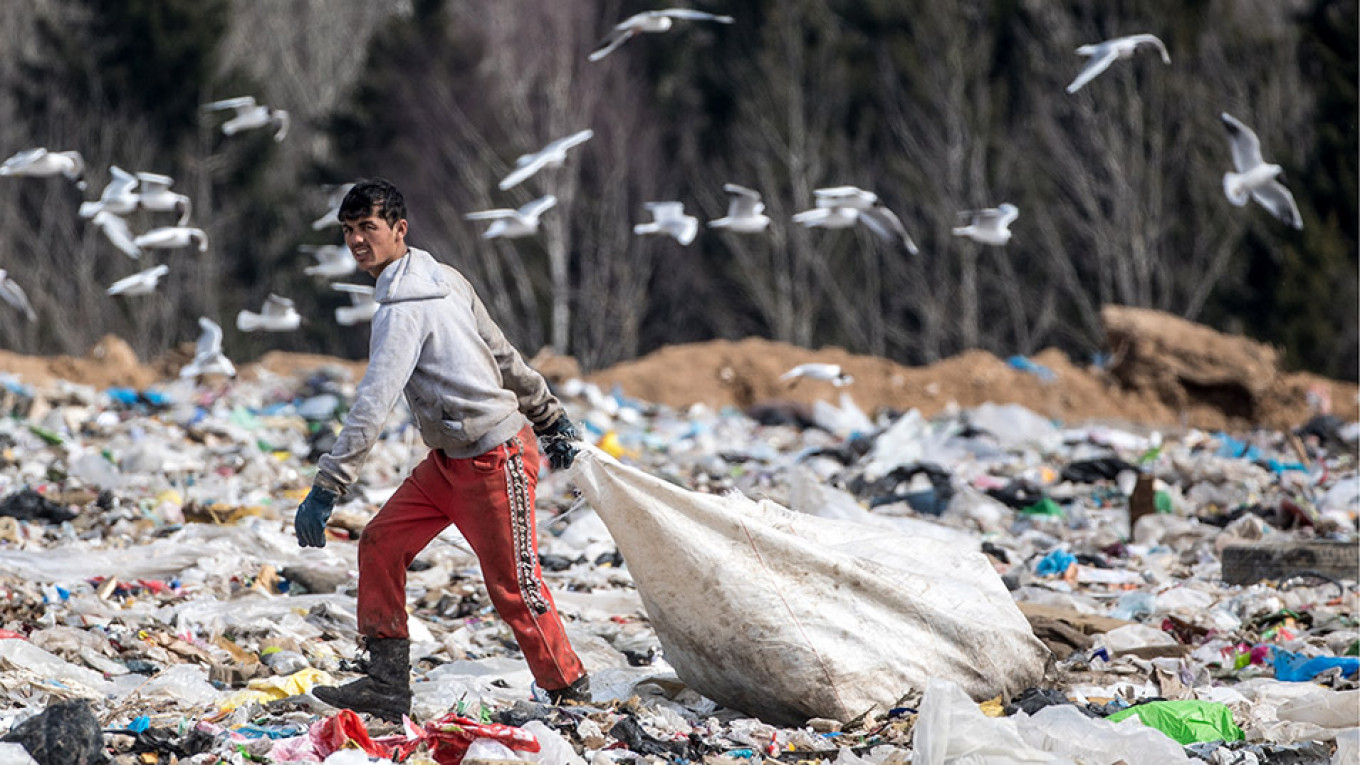
St. Petersburg will delay its implementation of citywide recycling for at least another year amid fears that it could lead to a spike in the costs of garbage collection and a public backlash, the Kommersant business daily reported Tuesday.
Russia launched its nationwide “trash reform” on Jan. 1, 2019, in an effort to tackle a growing garbage crisis that has set off mass protests against illegal trash dumps and environmental degradation. The measure bans landfills within city limits and mandates waste sorting and recycling, while tasking regions with choosing a single operator to collect, sort and store garbage.
St. Petersburg officials ruled at a closed-session meeting Monday to delay implementing the trash reform until 2021 over fears of “possible negative socioeconomic consequences for the city,” Kommersant reported.
Officials pointed to problems seen in other regions that have already adopted the reform, which have included protests among locals against new hefty fees for garbage collection.
At least 70 Russian regions implemented the reform earlier this year, while Moscow, St. Petersburg and Sevastopol were allowed to delay implementation until up to 2022.
In the regions that have implemented the reform, almost half of all trash collection bills are unpaid and many garbage companies are on the verge of bankruptcy, according to a draft report published in April.
“Many regions miscalculated the volume of trash and fees for collection… which resulted in social tensions,” Andrei Zauter, an analyst at the Strategy Partners consultancy firm, was cited as saying by Kommersant.
“The [St. Petersburg] authorities don’t want to increase the scope of this problem to that of a metropolis,” he added.
Meanwhile, Russia’s second-largest city has also stalled in choosing a single operator to process the estimated 1.8 million tons of trash that it produces annually, Kommersant reported.
Russia aims to recycle 60% of all trash by 2024, up from the estimated 12% that it currently recycles.
The government has earmarked over 300 billion rubles from the federal budget to build 200 new waste-sorting facilities around the country.
